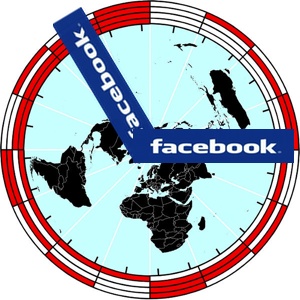Chances are, if you use the internet you have at least heard of Facebook. In fact, with Facebook’s 500 million users, there is a good chance that you are an active user of the service. Many people use Facebook to connect, share, play games, and yes even promote their interests. But all of this activity takes time. In fact, some users literally spend several hours a day on Facebook.
In today’s busy world, time is a precious commodity – we often don’t have enough time in the day to accomplish our needs and still have anything left over for a better quality of life. So how do people carve out the time to be a dedicated Facebook user?
Well, it might be that productivity time is being exchanged for Facebook time. And if we did have millions of users wasting many hours of productivity a week on such a service, we could easily label it an problem – a counter-productive epidemic. But is that overly harsh?
While I am sure that everyone manages their time expertly to their best advantage, there are nonetheless a couple points specific to Facebook (and most social networks in general) that a user should be aware of. Keeping these points in mind may keep you from crossing over into the counter-productive numbers.
Ambient Awareness Overload
Human beings are social creatures, and social networking mirrors the natural human pattern of communications. But beyond just communication, social networks are starting to expand the extent of our awareness. Through the queues given in Facebook messages and posts, we develop a natural sense of what our friends are doing. We tend to know when they are having a bad week, off on vacation, and even what new albums they are listening to. We can keep up with many friends through simple social network interactions in general, and Facebook in particular.
But are humans wired to have an extended awareness? I have seen too many times where a person found the need to feed this ambient awareness above that of the physical world. And that is not to say it is not real to the user – relationships with friends both local and extended are in fact equally tangible.
When the rush is to get back to Facebook and update your status, then something physical must give up your attention. And when this is a pattern that repeats too many times, your immediate surroundings may become ignored. Productivity and quality of life suffers in the interest of keeping up your growing ambient interests.
The games of Facebook, which tend to be very social by nature, even increase the ambient awareness with an entertainment factor. Are you the best farmer in your group? If you play the games, then you may have a general idea about your standings with the rest of your friends. Facebook games go out of their way to promote this knowledge, and you end up keeping the stats in your head. It just adds to your overall social awareness.
How can you avoid ambient awareness overload? The best way is to limit the total number of Facebook friends that you follow closely. The more friends you add from High School and College, the better the chances are that you will get wrapped up in the action. Keep the interactions to a minimum, and try to be less detail orientated. In practice, try to summarize instead of detail. And if you have a friend that goes all out in the detail (you know, the drama writers), then consider quietly removing that friend. Your life is busy without sharing everything of theirs.
False Sense of Satisfaction
Of course, once you update your status and catch up with your friends, you experience a feeling of satisfaction for a job well done. This is a basic reward system built into all people – otherwise you would not bother to do anything. But in a lot of ways it is a false sense of accomplishment.
I seriously doubt that many people have “Update Facebook” as a “To Do” goal. Yet it may have taken precedence over your list, and you feel good about doing it. In many ways, your drive to get something done has been satiated, and it triggers the endorphin reward. Even if you don’t get to your list, you feel good about being productive – despite not being so.
How can you avoid the false sense of satisfaction that Facebook can give you and avoid its effect on your motivation and overall self-efficacy? This is simple, but it requires a little effort on your part. Here is the secret – do the to do items first, and then hit Facebook to catch up. In this way you tackle your needs with a hunger for accomplishment, and save the satiated time for your social needs.
Of course, with email alerts (and possibly push notifications) reminding you that things are happening on Facebook it might prove to be too much of a temptation. In that case, go to your Facebook settings and turn them off. You want to handle your social network at a time that is best for your needs, not theirs. It’s okay – their needed Mafia hit will wait.
If you keep these two all too human mechanisms in mind when using Facebook, you may find that it can be a pleasure to connect with friends old and new without it being detrimental to your work and quality of life. In fact, social networks can add to our life, as long as we control them and not the other way around.

